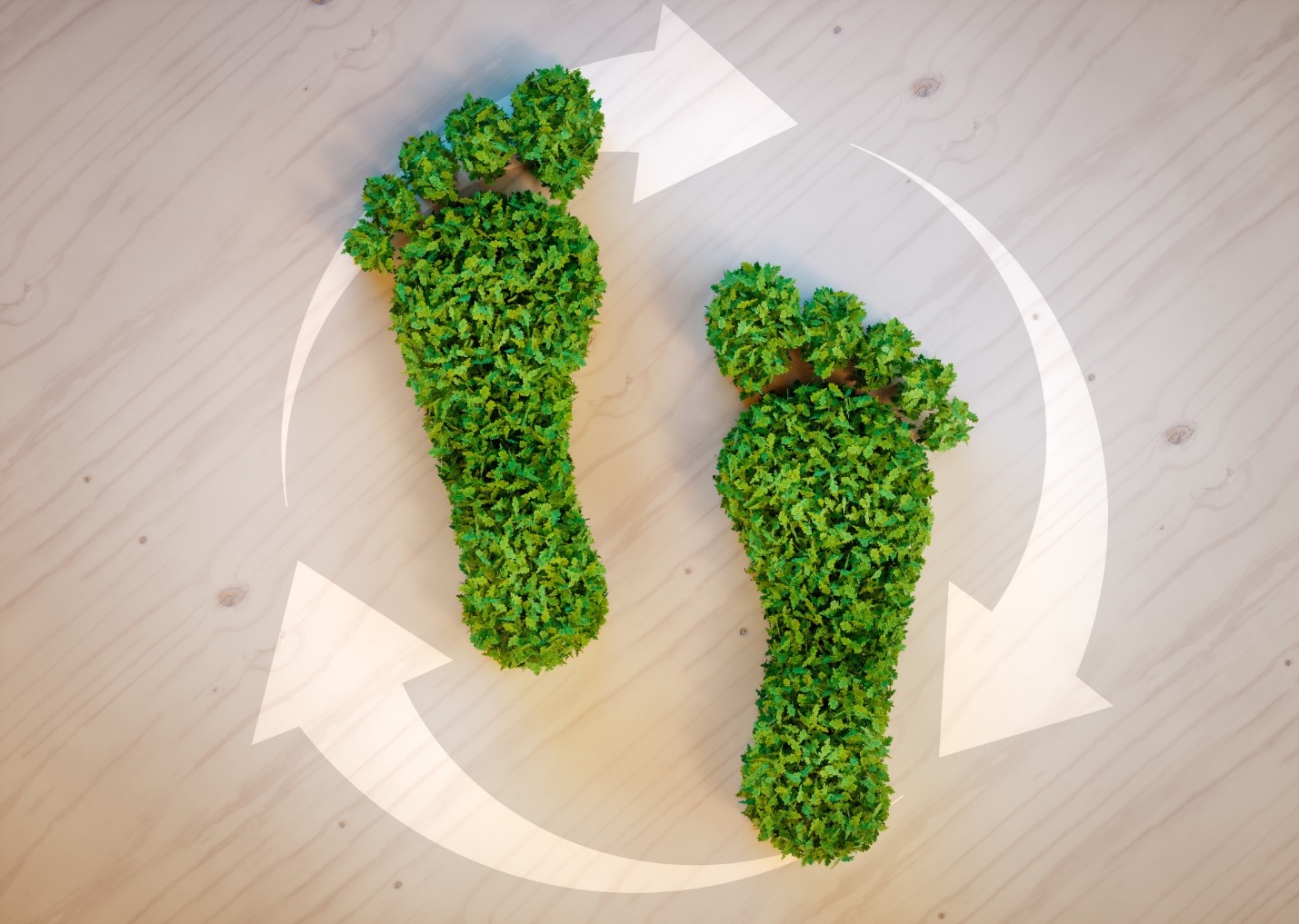The international panel of climate change, otherwise known as the IPCC, has announced that we as a planet have until 2030 to drastically reduce greenhouse emissions, otherwise anthropogenic (human-induced) climate change will reach a point that is unprecedented and extremely dangerous. If this is not achieved then we become at severe risk of even further global warming, which brings along with it heat waves, droughts and floods, which will affect millions of people across the globe either indirectly or directly.
So, we as a human race must act and act quickly in order to prevent such a disaster from occurring. Whether you are part of a big corporation, organization, business, company or simply an individual at the household level, you can make changes, big or small, that can help mitigate the impacts of climate change and help reduce greenhouse gas emissions.
You can do this by reducing your carbon footprint. A carbon footprint is simply a representation of the total volume of greenhouse gases resulting from day-to-day economic and human activities. This article will highlight a few ways in which you can reduce your carbon footprint to save not the planet, but humans.
1. Consume less meat
One relatively straightforward way to reduce your carbon footprint is by eating less meat. Yes, you read that correctly. Believe it or not, the dietary choices we make can have a large impact on the environment and planet Earth. Research has shown that meat, particularly that coming from cows, contributes significantly to the emissions of greenhouse gases and therefore climate change. Not only does the production of meat increase carbon dioxide emissions, but it also increases levels of sulfur and methane in the atmosphere too.
Further, since tropical forests and land are often cleared to make space and room for more grazing land, the impact of meat production is exacerbated. This is because trees and plants are essential to the smooth running and operation of the planet due to photosynthesis (the process whereby green plants convert carbon dioxide and energy from the sun to produce oxygen). This process therefore removes surplus carbon dioxide from the atmosphere, lessening the greenhouse effect, which is great for the planet.
So, if large amounts of plants and trees are being removed to make space for farmland, the amount of carbon dioxide that remains in the atmosphere increases, which is bad for the planet. As you can probably tell, therefore, producing meat is a major cause of greenhouse gas emissions. So, the simple act of eating less meat can have major benefits for the environment as the demand for meat will decrease and consequently, so will its production.
If meat is something you cannot live without, you do not have to completely remove it from your diet, but simply eat less of it. For example, you could replace one or two meat meals with ones that are vegetarian or vegan. You can also eat locally grown food as this reduces the need for transportation (another major contributing factor to emissions).
2. Use renewable energy
Another way to reduce your carbon footprint is by using renewable energy sources, as these can cut carbon emissions. There are many benefits associated with using them, such as boosting electricity access, reducing air pollution and of course, reducing carbon dioxide emissions globally.
The most common renewable power technologies include solar, wind, biogas, geothermal, biomass, hydroelectricity, and wave and tidal power. Evidently, there are many choices to choose from, which all have a positive impact on the environment. Solar power can be easily obtained from Solar Companies in Tucson, which provides high-quality solar installations at an affordable price. So, installing solar panels in your home, garden or business can be a great way to reduce your carbon footprint. This is because you will be using the sun, instead of non-renewable and environmentally damaging fossil fuels, to generate electricity. This of course is not only extremely eco-friendly, but also sustainable. So, in the long term, you will be doing yourself, family and perhaps even business a massive favor.
3. Produce less (food) waste
Waste in all forms, including that of food, is another major contributing factor to climate change and fossil fuel emissions. This is because much of this food waste ends up in landfills and combustion facilities, which release huge amounts of greenhouse gas emissions into the atmosphere. So, to reduce your carbon footprint limit and significantly reduce the amount of food that you waste. Not only will this benefit the environment (fewer emissions, and it will conserve energy and resources, yay!), but it will also save you money and help support your community.
You can reduce food waste by:
Planning – make a grocery list of all the essential food items you need. This can help you ensure that you are not spending money on food items that you do not need and so, will reduce the likelihood of food going to waste. Also, before shopping look in the refrigerator and cupboards to see what you already have (avoid buying multiple items of the same thing) and what you need.
Improving your storage techniques – research how to best keep fruits and vegetables fresh for longer. Also, the freezer is your friend! Lots of food items can be readily stored in the freezer, which will increase their shelf life massively. If you have any leftovers, do not throw them away in the bin, simply put them in your freezer or in the compost (if applicable).
Food preparation – After food shopping wash, dry and safety store your produce in containers and prep your food in ways that will help them last longer.
4. Travel efficiently
Transportation via bus, car, train and airplane releases huge amounts of carbon dioxide. So where possible, opt for more eco-friendly modes of transport, such as cycling or even walking. The more you walk or cycle and the less you use greenhouse gas emitting modes of transport, the less your personal carbon footprint will be. Even substituting a few car trips with bike rides can make the world of a difference.




